Joshua Francis Fisher | |
|---|---|
 | |
| Born | 17 February 1807 |
| Died | 21 January 1873 |
| Alma mater | |
| Children | Sophia Georgiana Coxe |
| Parent(s) | |
Joshua Francis Fisher (February 17, 1807 - January 21, 1873) was an American writer and philanthropist.
Joshua Francis Fisher | |
|---|---|
 | |
| Born | 17 February 1807 |
| Died | 21 January 1873 |
| Alma mater | |
| Children | Sophia Georgiana Coxe |
| Parent(s) | |
Joshua Francis Fisher (February 17, 1807 - January 21, 1873) was an American writer and philanthropist.
Fisher was born in Philadelphia. He graduated in 1825 from Harvard College, and was admitted to the bar in Philadelphia in 1829, but did not practice. He became an incorporator of the Pennsylvania Institution for the Instruction of the Blind and studied questions of American, in particular of Pennsylvanian, history. He married Elizabeth Powell Francis, who died during the birth of their only child, Joshua Francis Fisher, who was brought up by relatives. In 1833, Fisher was elected as a member of the American Philosophical Society. [1] During the American Civil War, he sympathized with the Confederacy.
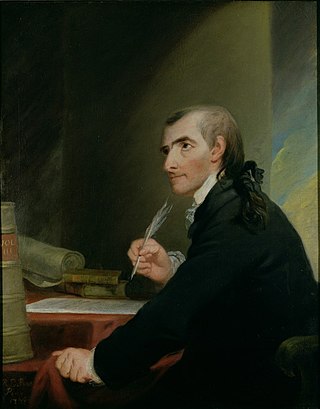
Francis Hopkinson was an American Founding Father, lawyer, jurist, author, and composer. He designed Continental paper money and two early versions of flags, one for the United States and one for the United States Navy. He was a signer of the Declaration of Independence in July 1776 as a delegate from New Jersey.

Charles Francis Adams Jr. was an American author, historian, and railroad and park commissioner who served as the president of the Union Pacific Railroad from 1884 to 1890. He served as a colonel in the Union Army during the American Civil War. After the war, he was a railroad regulator and executive, an author of historical works, and a member of the Massachusetts Park Commission.
Francis Edward Rawdon-Hastings, 1st Marquess of Hastings,, styled The Honourable Francis Rawdon from birth until 1762, Lord Rawdon between 1762 and 1783, The Lord Rawdon from 1783 to 1793 and The Earl of Moira between 1793 and 1816, was an Anglo-Irish politician and military officer who served as Governor-General of India from 1813 to 1823. He had also served with British forces for years during the American Revolutionary War and in 1794 during the War of the First Coalition. In Ireland, he was critical of the policy of coercion used to break the United Irish movement for representative government and national independence. He took the additional surname "Hastings" in 1790 in compliance with the will of his maternal uncle, Francis Hastings, 10th Earl of Huntingdon.

Samuel Hirsch, was a major Reform Judaism philosopher and rabbi who mainly worked and resided in present-day Germany in his earlier years. He promoted the radical German Reform Judaism movement and published several works in the 1840s. He moved to the United States in 1866 where he would die in Chicago, Illinois in 1889.

Alan Shaw Taylor is an American historian and scholar who is the Thomas Jefferson Memorial Foundation Professor of History at the University of Virginia. A specialist in the early history of the United States, Taylor has written extensively about the colonial history of the United States, the American Revolution and the early American Republic. Taylor has received two Pulitzer Prizes and the Bancroft Prize, and was also a finalist for the National Book Award for non-fiction. In 2020 he was elected to the American Philosophical Society.

Anthony Joseph Drexel Sr. was an American banker who played a major role in the rise of modern global finance after the American Civil War. As the dominant partner of Drexel & Co. of Philadelphia, he founded Drexel, Morgan & Co, which later became J.P. Morgan & Co., in New York City in 1871 with J. P. Morgan as his junior partner. He also founded Drexel University in Philadelphia in 1891.

Jonathan Shipley was a clergyman who held offices in the Church of England, who became Bishop of Llandaff from January to September 1769 and Bishop of St Asaph from September 1769 until his death.

Francis Kernan was an American lawyer and politician. A resident of New York, he was active in politics as a Democrat, and served in several elected offices, including member of the New York State Assembly, member of the United States House of Representatives, and United States Senator from 1875 to 1881.
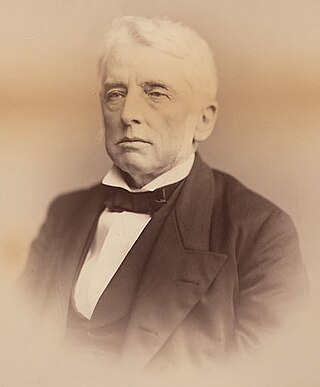
John Cadwalader was an American lawyer, jurist, and politician who served as a United States representative from Pennsylvania and a United States district judge of the United States District Court for the Eastern District of Pennsylvania.

William Darrah Kelley was an American politician from Philadelphia who served as a Republican member of the U.S. House of Representatives for Pennsylvania's 4th congressional district from 1861 to 1890.

John Notman was a Scottish-born American architect and landscape architect based in Philadelphia. He designed buildings, cemeteries, churches and country estates in the Mid-Atlantic region of the United States and helped popularize Italianate architecture in the United States.
Samuel Rowland Fisher was a prominent Philadelphia merchant involved in transatlantic trade. He owned a large shipping line that ran between London and Philadelphia, but was exiled and imprisoned during the Revolutionary War because of his Quaker beliefs.

Deborah Fisher Wharton (1795–1888) was an American Quaker minister, suffragist, social reformer and proponent of women's rights. She was one of a small group of dedicated Quakers who founded Swarthmore College along with her industrialist son, Joseph Wharton. She was a contemporary and friend of Lucretia Mott and had many of Mott's sympathies but did not actively pursue the women's rights cause, rather she was a proponent of liberal Quaker spirituality.

John McDowell Leavitt was an early Ohio lawyer, Episcopal clergyman, poet, novelist, editor and professor. Leavitt served as the second President of Lehigh University, Bethlehem, Pennsylvania, and as President of St. John's College in Annapolis, Maryland.

John Fanning Watson was a Philadelphia antiquarian, a chronicler and a historian who became a professional writer. He is best known as the author of Annals of Philadelphia (1830).
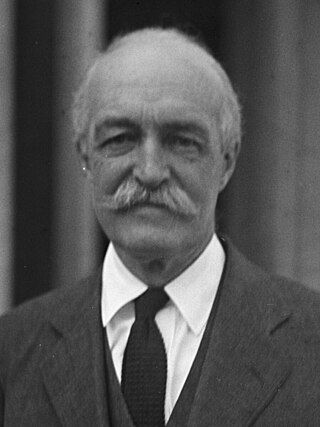
The 1930 Pennsylvania gubernatorial election occurred on November 4, 1930. Incumbent Republican governor John Stuchell Fisher was not a candidate for re-election. Republican candidate and former governor Gifford Pinchot defeated Democratic candidate John M. Hemphill to win a second, non-consecutive term as Governor of Pennsylvania.
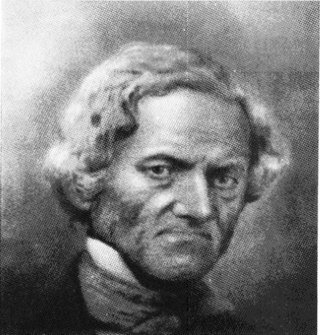
John Pierre Burr was an American abolitionist and community leader in Philadelphia, Pennsylvania, active in education and civil rights for African Americans. He was an illegitimate child of Aaron Burr, the third U.S. vice president, and Mary Emmons, a Haitian governess who may have been born in Calcutta, India.

John Weaver was an American lawyer and politician who served as a Republican mayor of Philadelphia from 1903 to 1907.
Joshua Gilpin was an American paper manufacturer from Philadelphia. Along with his brother, Thomas Gilpin, Jr. and his uncle Miers Fisher, he established the first paper manufacturing business in Delaware in 1787 at the Brandywine Village. In 1804, he introduced the technique of chemically bleaching paper-stuff from England to the United States.
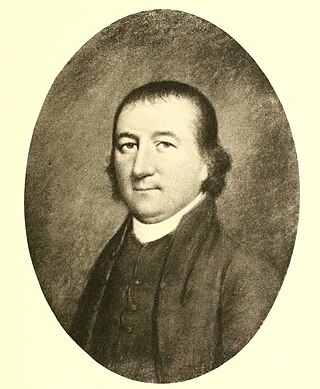
Miers Fisher was a lawyer, legislator, philanthropist, and merchant from Philadelphia, Pennsylvania. He was imprisoned and exiled during the Revolutionary War because of his Quaker beliefs, and after the war served in the Pennsylvania House of Representatives.